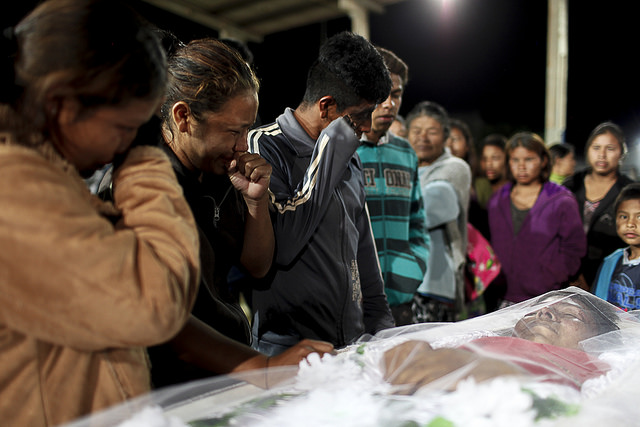Kelli Mafort: "Our steps are the size of our dreams"
During the campaign of struggle, women from the countryside and the city unite against the violence and setbacks of the Bolsonaro government.
by Maura Silva
The strength of women is kicking off the year of major mobilizations in the country. Under the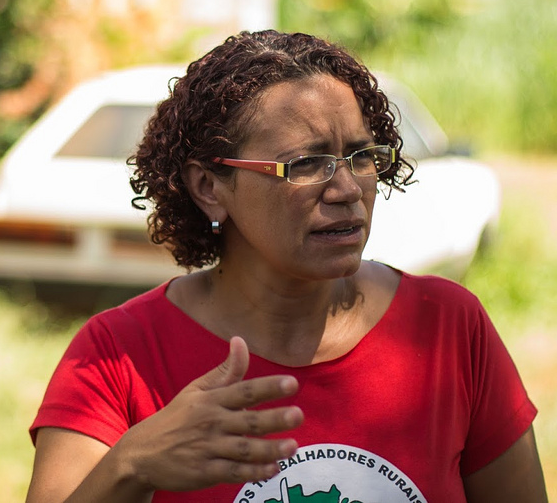 motto: "For the sake of women’s lives, we are all Marielle!" Thousands of rural and urban women will unite in the fight against violence, against Bolsonaro and the setbacks imposed by his government.
motto: "For the sake of women’s lives, we are all Marielle!" Thousands of rural and urban women will unite in the fight against violence, against Bolsonaro and the setbacks imposed by his government.

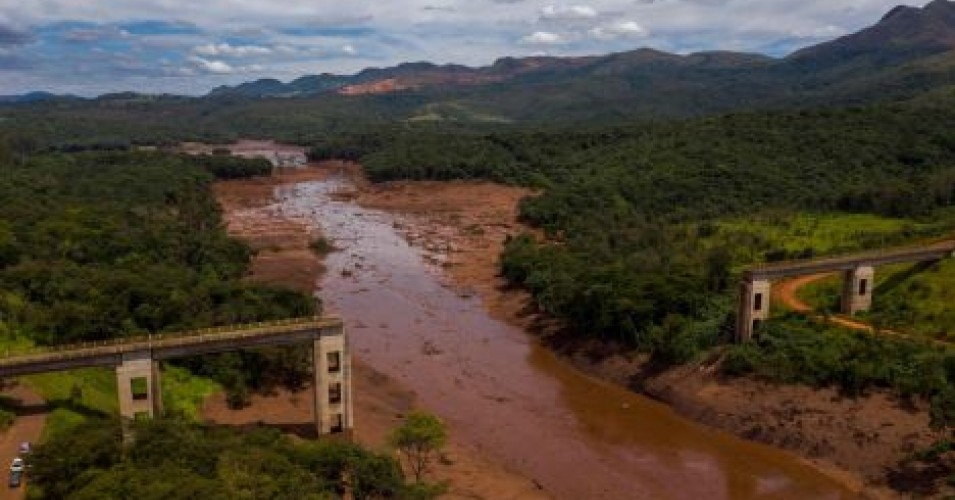 On January 25, 2019, a dam burst in the town of Brumadinho, north of Rio de Janeiro, Brazil. The dam was built by the iron-ore company Vale to store residue after the iron ore had been extracted. Once the dam began to crumble, it did not take long for its 13 million cubic meters of iron waste to sweep down onto the workers and into their town.
On January 25, 2019, a dam burst in the town of Brumadinho, north of Rio de Janeiro, Brazil. The dam was built by the iron-ore company Vale to store residue after the iron ore had been extracted. Once the dam began to crumble, it did not take long for its 13 million cubic meters of iron waste to sweep down onto the workers and into their town. The clear waters of the Paraopeba River in São Joaquim de Bicas (MG), metropolitan area of Belo Horizonte (MG), were filled with mud and changed their color. What once was crystalline now has texture and coloring similar to an oil paint: dense, viscous, brownish. The desolate scenery is aggravated by the odor of decaying fish.
The clear waters of the Paraopeba River in São Joaquim de Bicas (MG), metropolitan area of Belo Horizonte (MG), were filled with mud and changed their color. What once was crystalline now has texture and coloring similar to an oil paint: dense, viscous, brownish. The desolate scenery is aggravated by the odor of decaying fish.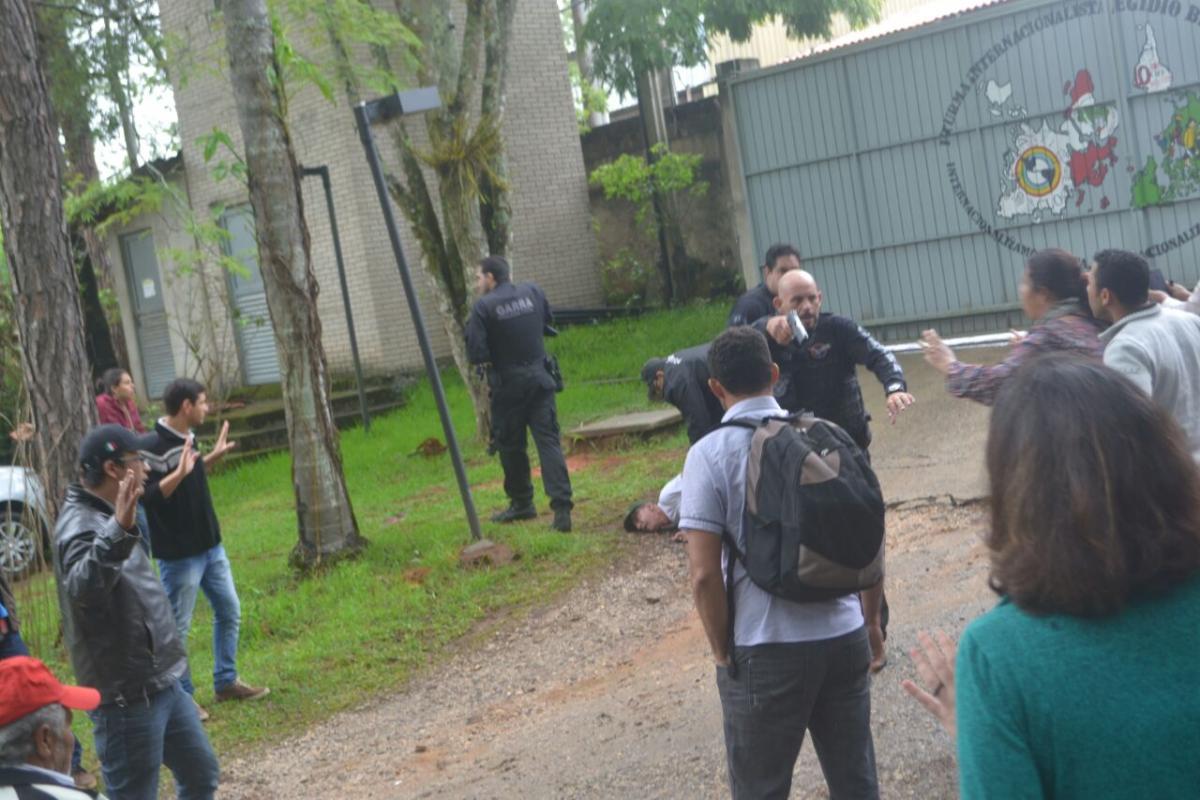 MST’s national school, firing live ammunition into the air. The police arrived without any warrants terrorizing classes in session. After retreating outside the school’s gates, ostensibly waiting for warrants, the police withdrew.
MST’s national school, firing live ammunition into the air. The police arrived without any warrants terrorizing classes in session. After retreating outside the school’s gates, ostensibly waiting for warrants, the police withdrew.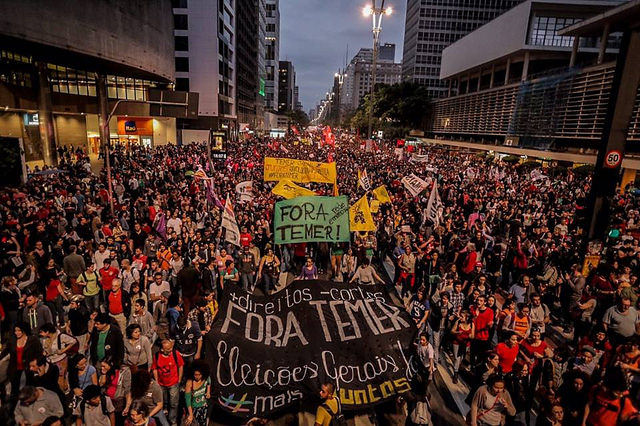 Over a hundred thousand people attended the protest against the Temer government on Sunday, September 4 on Paulista Avenue. The demonstration, organized as a united action by the Brazil Popular Front and People Without Fear, criticized the process of institutional breakdown in the country and the agenda to curtail rights announced by the PMDB.
Over a hundred thousand people attended the protest against the Temer government on Sunday, September 4 on Paulista Avenue. The demonstration, organized as a united action by the Brazil Popular Front and People Without Fear, criticized the process of institutional breakdown in the country and the agenda to curtail rights announced by the PMDB.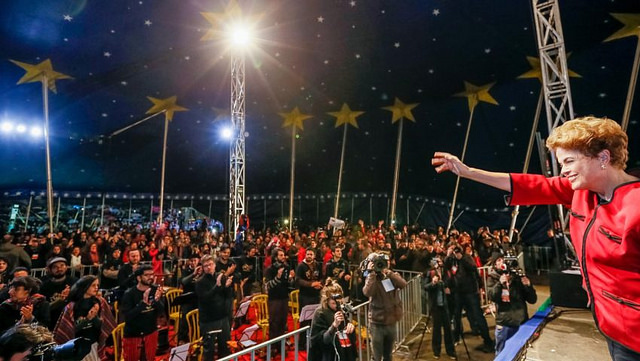 Brazilian democracy.
Brazilian democracy.